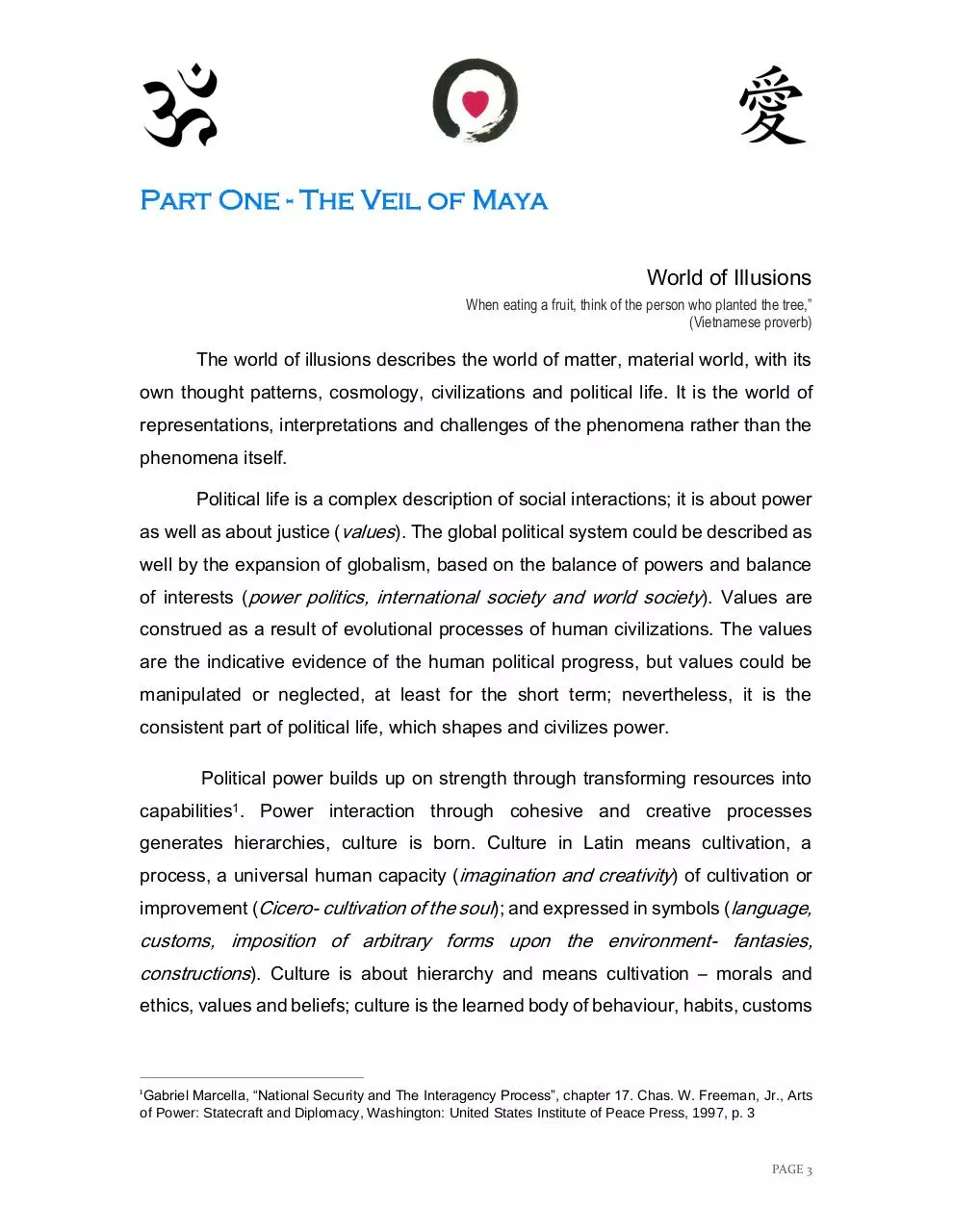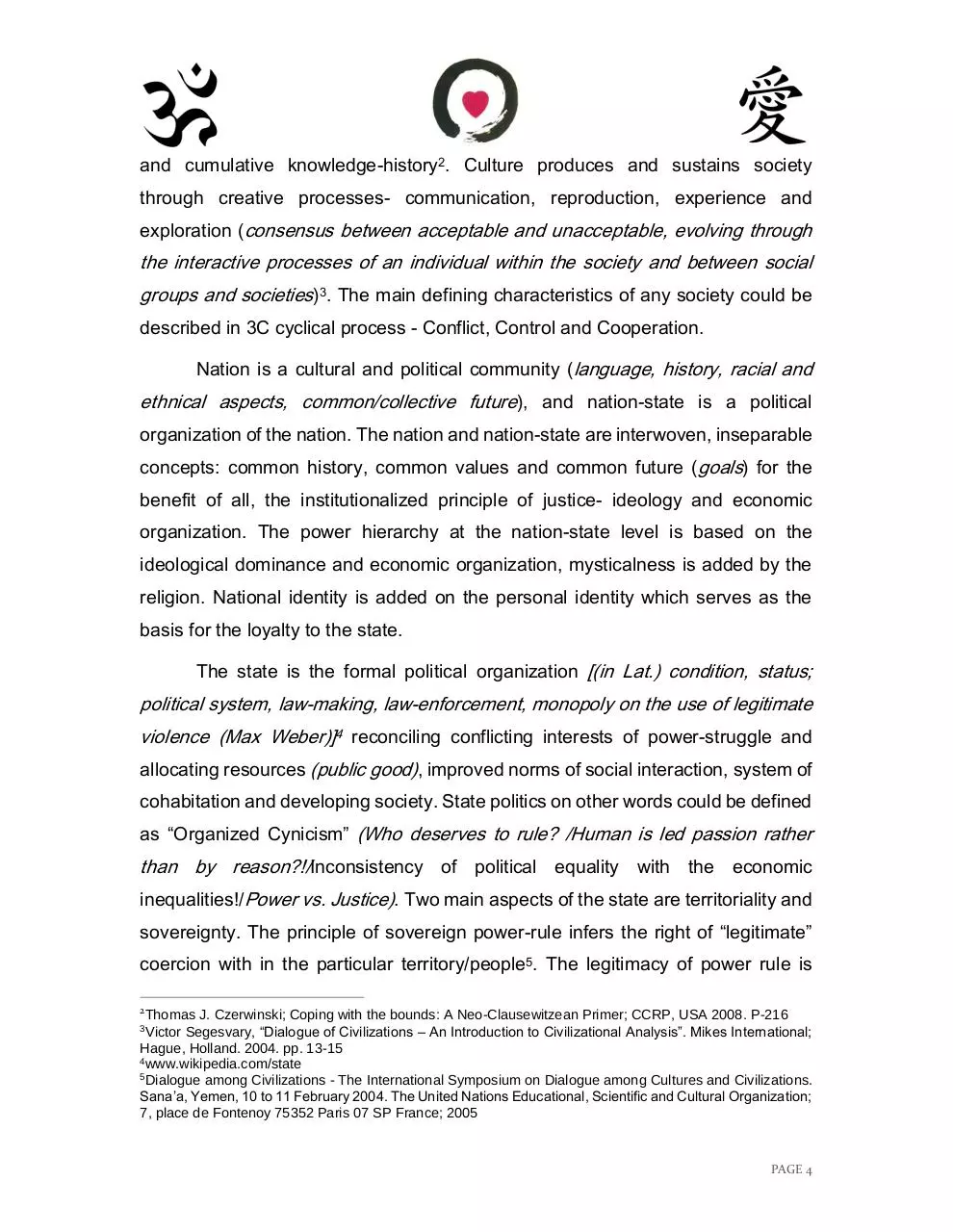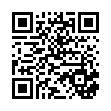SP Eng (PDF)
File information
Title: SOLAR POWERED
Author: RePack by Diakov
This PDF 1.5 document has been generated by Microsoft® Word 2013, and has been sent on pdf-archive.com on 30/08/2016 at 02:25, from IP address 94.43.x.x.
The current document download page has been viewed 568 times.
File size: 903.22 KB (33 pages).
Privacy: public file





File preview
SOLAR POWERED
Kakhaber Tukhashvili
Foreword
This eBook is my “Lapis Lazuli,” my life-wok if I may express so. We all deserve to fully
understand the reality we live in and that is my mission to the reader, to present the holistic
understanding of consciousness. I share my conceptual understanding of reality and contemplative
studies of consciousness based on my personal experience and contemplation, though numerous
quotations and quite extensive bibliographic material serve supplementary function for
strengthening personal views and perceptive contemplation. The eBook is meant for everyone who
values philosophical contemplation and metaphysics.
PAGE 1
Table of Contents
1.
The Veil of Maya
World of Illusions
Knowledge of the Mask
Ego-civilization
Flying Carpet
Page-3
2.
Threads of Consciousness
Consciousness of Form & Energy
Genius of Mind
Knower & Known
Spellbound
So-Ham
Robe & Bowl
Solar Powered
Page-17
3.
Metaphysical Poetry
Dominions
Luminous Mind
Black Swan
Dog Awareness
Perfect Genuineness
Satyagraha
Ellis Bell
Covenant
Dreamcatcher
Page-23
Bibliography
Page-30
PAGE 2
Part One - The Veil of Maya
World of Illusions
When eating a fruit, think of the person who planted the tree,”
(Vietnamese proverb)
The world of illusions describes the world of matter, material world, with its
own thought patterns, cosmology, civilizations and political life. It is the world of
representations, interpretations and challenges of the phenomena rather than the
phenomena itself.
Political life is a complex description of social interactions; it is about power
as well as about justice (values). The global political system could be described as
well by the expansion of globalism, based on the balance of powers and balance
of interests (power politics, international society and world society). Values are
construed as a result of evolutional processes of human civilizations. The values
are the indicative evidence of the human political progress, but values could be
manipulated or neglected, at least for the short term; nevertheless, it is the
consistent part of political life, which shapes and civilizes power.
Political power builds up on strength through transforming resources into
capabilities1. Power interaction through cohesive and creative processes
generates hierarchies, culture is born. Culture in Latin means cultivation, a
process, a universal human capacity (imagination and creativity) of cultivation or
improvement (Cicero- cultivation of the soul); and expressed in symbols (language,
customs, imposition of arbitrary forms upon the environment- fantasies,
constructions). Culture is about hierarchy and means cultivation – morals and
ethics, values and beliefs; culture is the learned body of behaviour, habits, customs
1
Gabriel Marcella, “National Security and The Interagency Process”, chapter 17. Chas. W. Freeman, Jr., Arts
of Power: Statecraft and Diplomacy, Washington: United States Institute of Peace Press, 1997, p. 3
PAGE 3
and cumulative knowledge-history2. Culture produces and sustains society
through creative processes- communication, reproduction, experience and
exploration (consensus between acceptable and unacceptable, evolving through
the interactive processes of an individual within the society and between social
groups and societies)3. The main defining characteristics of any society could be
described in 3C cyclical process - Conflict, Control and Cooperation.
Nation is a cultural and political community (language, history, racial and
ethnical aspects, common/collective future), and nation-state is a political
organization of the nation. The nation and nation-state are interwoven, inseparable
concepts: common history, common values and common future (goals) for the
benefit of all, the institutionalized principle of justice- ideology and economic
organization. The power hierarchy at the nation-state level is based on the
ideological dominance and economic organization, mysticalness is added by the
religion. National identity is added on the personal identity which serves as the
basis for the loyalty to the state.
The state is the formal political organization [(in Lat.) condition, status;
political system, law-making, law-enforcement, monopoly on the use of legitimate
violence (Max Weber)]4 reconciling conflicting interests of power-struggle and
allocating resources (public good), improved norms of social interaction, system of
cohabitation and developing society. State politics on other words could be defined
as “Organized Cynicism” (Who deserves to rule? /Human is led passion rather
than by reason?!/Inconsistency of political equality with the economic
inequalities!/Power vs. Justice). Two main aspects of the state are territoriality and
sovereignty. The principle of sovereign power-rule infers the right of “legitimate”
coercion with in the particular territory/people5. The legitimacy of power rule is
2
Thomas J. Czerwinski; Coping with the bounds: A Neo-Clausewitzean Primer; CCRP, USA 2008. P-216
Segesvary, “Dialogue of Civilizations – An Introduction to Civilizational Analysis”. Mikes International;
Hague, Holland. 2004. pp. 13-15
4www.wikipedia.com/state
5Dialogue among Civilizations - The International Symposium on Dialogue among Cultures and Civilizations.
Sana’a, Yemen, 10 to 11 February 2004. The United Nations Educational, Scientific and Cultural Organization;
7, place de Fontenoy 75352 Paris 07 SP France; 2005
3Victor
PAGE 4
dependent on two factors, on political participation and consent of a society. The
sources of legitimacy vary from traditional-charismatic to democratic powersource. The traditional-charismatic power is based on the mystical, personal,
emotional, psychological and institutional characteristics of control (M. Weber
1864-1920)6. The democratic power-source starts with the constitutionalism- “Rule
of Law”, principle of checks and balances [The declaration of Independence in
1776, followed by the American (1787) and French Constitutions (1789), though
the first was Britain adopting constitution in 1688]. The European statehood have
passed developmental phases from prosperity of state sovereignty ( 1648-1789),
through the period of reaction nationalism (1789-1914) and the period of formation
and development of political ideologies (1914-1974) to the postmodern statehood
(1992-present).
The concert of nations make up civilizations (larger community consciousness),
which is the offspring of cross-fertilization of cultures7. Civilization is designated by
the three qualifiers: cultural-historic, religion and values; and, geographic8.
Religions serve as vehicles for transformations of civilizations; there are three
definitional clusters within which civilizations take shape – culture, history and
values. In particular exemplification, the Western Civilization is based on the
Greco-Roman cultural heritage, Judeo-Christian Religion and the Enlightenment
starting from the WVIII-XIX centuries9. The great powers believe that they have
special destiny that are bearers of universal missions (civilization mission, white
6Ibid.
7
Biological evidence shows that the races differ in important ways and it is not a social construct. There are
important race differences in brain size, intelligence, sexual behavior, fertility, personality, maturation, life
span, crime and in family stability. There is a lot of variation within each of the three races; but still, group
averages are important. For personality and IQ, genetic DNA structure dependence on heritability from the
one hand, and from the other-environment varies from 40% to 70% on heredity and 60%-30% on environment.
The studies show that social attitudes, criminal tendency, behavior and aggression, who we marry and who
we choose friends are also partly genetic. For instance, a higher percentage of Orientals and a lower
percentage of Blacks end up in the highest IQ categories; Blacks make up only about 12% of the U.S.
population, each year they commit about half of all crimes (Professor J. Philippe Rushton; RACE,
EVOLUTION, AND BEHAVIOR: A Life History Perspective; 2nd Special Abridged Edition. University of
Western Ontario. London, Ontario, Canada N6A 5C2. pp 28-30)
8Victor Segesvary, “From Illusion to Delusion – Globalisation and Contradictions of Late Modernuty”. Mikes
International; Hague, Holland. 2004
9Youssef Al-Qaradawi, Islam, the Civilization of the Future, p. 15, Wahba Library, Cairo, 1995
PAGE 5
man’s burden, spread of democracy), which is the cause as well as a tool of their
expansionary politics. From the other point the great nations and civilizations are
also the part of the greater one – the human civilization, so thus by fulfilling their
missionaries they are embedding the entire human civilization with its own special
destiny.
The special destiny or the special mission of human civilization from the
evolutionary perspective could be highlighted as the strife for harmony and integrity
of development and justice. Soul, philosophical soul, is the highest possible ideal
for human development, an expression of the authentic self.
Knowledge of the Mask
“The skill of writing is to create a context in which other people can think,”
Edwin Schlossberg
Ideology is a comprehensive vision, comprising worldview, a way of looking
things, belief systems and values; ideologies in certain sense represent science of
ideas, a relativistic intellectual strategy for categorizing the world which guides
human power over cognition, evaluation and action. Ideologies mainly are
culturally conscious and bear class interests. Power is efficient when it promotes
society’s advancement in knowledge, science and culture. Ideology always serves
for power interests tying inequality and power, manipulating with the information
with various generalization techniques and thought, and belief systems, with the
goal- state of society under continuous control10. Power can be creative as well as
coercive, the ideology in function is that it gives a distorted understanding of social
world in certain crucial ways that mislead, distort, and give a false sense of
freedom; value gradation in the scientific dogmatic system also contributes to
sustaining oppressive and exploitative social relations 11.
10Alexander,
J. C. Civil Society between Difference and Solidarity Rethinking Integration the Fragmented
Public Sphere. Theoria: A Journal of Social and Political Theory, 1998. pp.92, 1-14
11Chandra Kumar, Foucault and Rorty on Truth and Ideology: A Pragmatist View from the Left. Contemporary
Pragmatis; Editions Rodopi. Vol. 2, No. 1; June 2005. pp.35–93
PAGE 6
Friedrich Nietzsche (1844-1900) reductions everything to power, the values
are expression of will to power12, “Life is will to power”- power is the ultimate
“value”, power dictates morals, truths and all other values. Karl Marx thought that
there are no objective truths or eternal principles of morality, ruling ideas and
norms constitute a delusive mask upon the face of the dominant class, shown to
the exploited as a standard of conduct, partly to varnish, partly to provide moral
support for domination; Marx thought that economic power lies at the roots of
political power, those who control means of economic production, directly or
indirectly, control the means of mental production. These include “the major
institutions that educate and indoctrinate young people, acquire and transfer
knowledge, and articulate and mould popular opinion, as well as the physical
resources those institutions utilize” (Shaw 1989, 433)13.
The power rules and directs its interests by the institutions of (organized)
religion, education, publicity and law enforcement. Although, religion provided a
noble ideal capable of eliciting the best in humankind, fostering social unity, moral
virtue (righteousness and goodness) and sacrifice on behalf of a transcendent
good beyond mere self-interest and materialism; religious ideologies of
fundamentalism and conservatism, with its dogmatic belief systems; and, and its
politico-institutional organizations represent the compromised (warped) form of
moral authority, which is the part of a wider political meta-theory (ideology)
sanctifying the inequality of wealth in the capitalist social construction; serving as
an instrument of rich and powerful ruling institutions. The both, theocratic politics
and materialistic ideologies equally strip humanity of its transcendence. Religious
ideology, serving the same purpose crafts the false-consciousness which usually
12Michael
Lacewing, Nietzsche’s ‘histories’ of morality. Routledge, Taylor & Francis Group
Hacke on the Legacy of Hans J. Morgenthau. Power and Morality. Hans J. Morgenthau, Quoted
in: Christoph Rohde, Hans J. Morgenthau und der weltpolitische Realismus, Verlag für Sozialwissenschaften,
Wiesbaden 2004, p. 300
13Christian
PAGE 7
functions to legitimize a hierarchical social order, is not simply imposed by
oppression but constructed by the beliefs and hopes14.
Ideologies are unable to give a coherent, all-embracing picture of the world.
As instruments of manipulation, ideologies exist in concrete historical forms and
represent worldviews designed to arouse the energies of people in order to inspire
actions related to the achievement of the envisaged objectives (like Marxism, or
various types nationalisms)15: Liberalism postulates that the human as an
individual is more valuable than an entire society; highlights human rights and
fundamental
freedoms,
equality,
tolerance16,
social
consensus
and
constitutionalism; Liberalism had formed with the influence of Protestantism.
Conservatism postulates that the human as individual is selfish, greedy and
morally weak; Conservatism emphasizes on tradition, pragmatism, hierarchy,
property rights, nation and state, power and authority (authority must be gained by
experience and education; society which does not recognize authority is
degrading); Socialism postulates on society, fraternity and equality17.
Ideology is about reality construction, manufacturing the “truths”, which has
two crucial components: emancipatory and expansionary components. The
emancipatory component of ideology is attitudinal; it aims at the mind, thinking
processes and morals. The expansionary component is systemic; it aims at the
organization of power and justice. For example, Capitalism represents
emancipatory component of ideology, which is based on “strong individualism” and
which enslaves with the myth of success. The hegemonic dominance is achieved
14New
Bible Dictionary, Second Edition, Tyndale House, 1982. pp. 526-527; BD Sommer, Introduction to
Isaiah and Annotated Commentary, The Jewish Study Bible, Oxford University Press; 2004. pp. 780-784, p.
867
15 Victor Segesvary, “Dialogue of Civilizations – An Introduction to Civilizational Analysis”. Mikes International;
Hague, Holland. 2004. pp. 16-17
16Five Evils (Report submitted in the GB’s Parliament in 1942): Hardship, Ignorance, Idleness, Lavishness
and Illness. Andrew Heywood; Politics – Second Edition; Palgrave. 2002. pp. 50-60
17Benjamin Disraeli (1804-1881) introduced the doctrine of “Paternalistic” Conservatism, to avoid further
differentiation between aristocratic and working classes. Nowadays, he GB’s reformed conservatism is
represented by the Tory; Ibid. pp 60-65
PAGE 8
Download SP Eng
SP_Eng.pdf (PDF, 903.22 KB)
Download PDF
Share this file on social networks
Link to this page
Permanent link
Use the permanent link to the download page to share your document on Facebook, Twitter, LinkedIn, or directly with a contact by e-Mail, Messenger, Whatsapp, Line..
Short link
Use the short link to share your document on Twitter or by text message (SMS)
HTML Code
Copy the following HTML code to share your document on a Website or Blog
QR Code to this page

This file has been shared publicly by a user of PDF Archive.
Document ID: 0000478084.